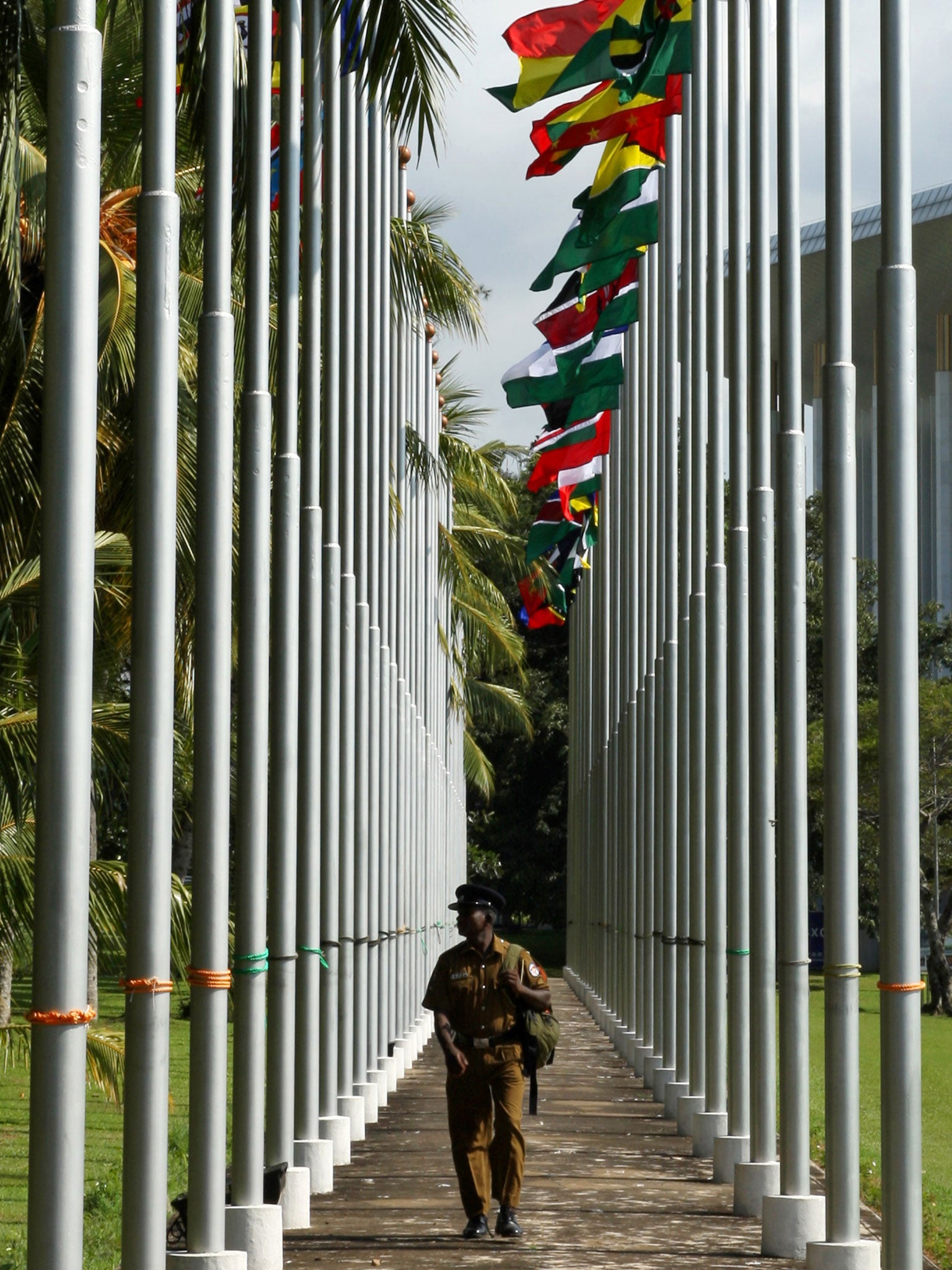The other scandal in Sri Lanka - and 80% of Commonwealth countries: endemic homophobia
Warning that gay people are being demonised across Commonwealth comes ahead of summit this week

Nearly 80 per cent of Commonwealth countries are enforcing anti-gay laws perpetuated by leaders who are “wilfully turning a blind eye to homophobia on a massive scale”, a report warns today.
The study, commissioned by the Kaleidoscope Trust and compiled by Lesbian, Gay, Bisexual, Transsexual and Intersex (LGBTI) activists across the Commonwealth, calls for Britain’s former colonies to repeal anti-gay legislation, with an immediate moratorium on enforcement. Homosexual acts are a criminal offence in 41 of the 53 members of the Commonwealth, including Jamaica, Pakistan, Singapore and Malaysia.
The warning comes as leaders prepare for the Commonwealth heads of government summit that begins in Sri Lanka on Friday, where the issue of anti-gay discrimination is not on the official agenda.
“Gay rights is one of the last bastions of acceptable human rights abuses, and for Commonwealth leaders not to spend one single second discussing it – even as laws are being passed in places such as Uganda that could see gay people sentenced to death – speaks volumes for priorities,” said Kaleidoscope’s spokesman.
In a foreword to the report, Sir Shridath Ramphal, the former Secretary-General of the Commonwealth, calls for all countries to “rid ourselves of this archaic legal inheritance”, branding it “a relic of Empire”.
The report highlights a series of cases across Africa, Asia and the Americas in which anti-gay campaigners have been targeted.
One account from Caleb Orozco, executive director of the United Belize Advocacy Movement, reads: “As the only claimant in the current constitutional challenge case, I have lost two teeth, had my family property invaded and car damaged by two masked men in the week of the supreme court hearings in May of this year.
“I have had stones thrown at me, experienced simulated gunshots, insults and physical harm on public transportation, and threats.”
Uganda, widely considered one of the worst offenders, is in the process of passing tougher anti-gay legislation, dubbed locally as the “Kill the Gays” bill. According to the report, in February 2012, the Minister for Ethics and Integrity, Simon Lokodo, was involved in a raid on a workshop for LGBTI women at which he reportedly said: “I have closed this conference because it’s illegal. We do not accept homosexuality in Uganda. So go back home.”
Singapore, the report says, has seen increasing “police surveillance and censorship of LGBTI events and activities [that] are common occurrences”.
“Across the Commonwealth LGBTI people face criminalisation and social discrimination. They face violence. They face eviction from their homes, dismissal from their jobs and estrangement from their families.” Officials insist that although such issues remain off the official agenda, talks are likely to occur behind the scenes. However it adds to concerns over Britain’s decision to attend the summit in Sri Lanka, where same-sex conduct is illegal and LGBTI activists have been threatened with detention.
Today, the Indian Prime Minister, Manmohan Singh, is expected to confirm intentions to boycott the meeting in a row over the country’s human rights record.
In March, the Queen signed a charter that marked the first time Commonwealth countries had adopted a single document promoting gay rights and gender equality. But its usefulness has come into question. “It’s effectively a talking shop designed to smooth the wheels of trade. In terms of resolving human rights issues it has been singularly ineffective,” the spokesman for the Kaleidoscope Trust said.
A Downing Street spokeswoman said last night: “The Commonwealth Charter, agreed by all Commonwealth members, explicitly states that we are opposed to all forms of discrimination, and it is important that all members live up these values. That is the message that we will be taking to the summit.”
‘Children of the devil’: victims’ voices
"I have lost two teeth, had my family property invaded and car damaged by two masked men . . . I have had stones thrown at me, experienced simulated gun shots, insults and physical harm on public transportation, threats that speak to, 'Caleb, you have no right to breathe!'" - Caleb Orozco, Belize
"I have had to battle against a belief that my behaviour situates me outside the ‘normal’. I had been called a “child of the devil” who was at-risk, vulnerable, stigmatised and lacking... but we are challenging that prejudiced view with some success." - Joey Joleen Mataele, Tonga
"I openly live as an intersex person. Australia has a reputation for a ‘macho’ culture so I was proud to be elected mayor two years ago. I wish more people knew about intersex so people felt comfortable about being open about the way they were born." - Tony Briffa, Australia
"It’s been over seven months and counting since any of my family laid eyes on me. They refuse to accept me for who I am and worse off, because I advocate for what I believe in. I can never go back home now, as home has now become a memory in my past." - Charles, Zambia.
Subscribe to Independent Premium to bookmark this article
Want to bookmark your favourite articles and stories to read or reference later? Start your Independent Premium subscription today.

Join our commenting forum
Join thought-provoking conversations, follow other Independent readers and see their replies